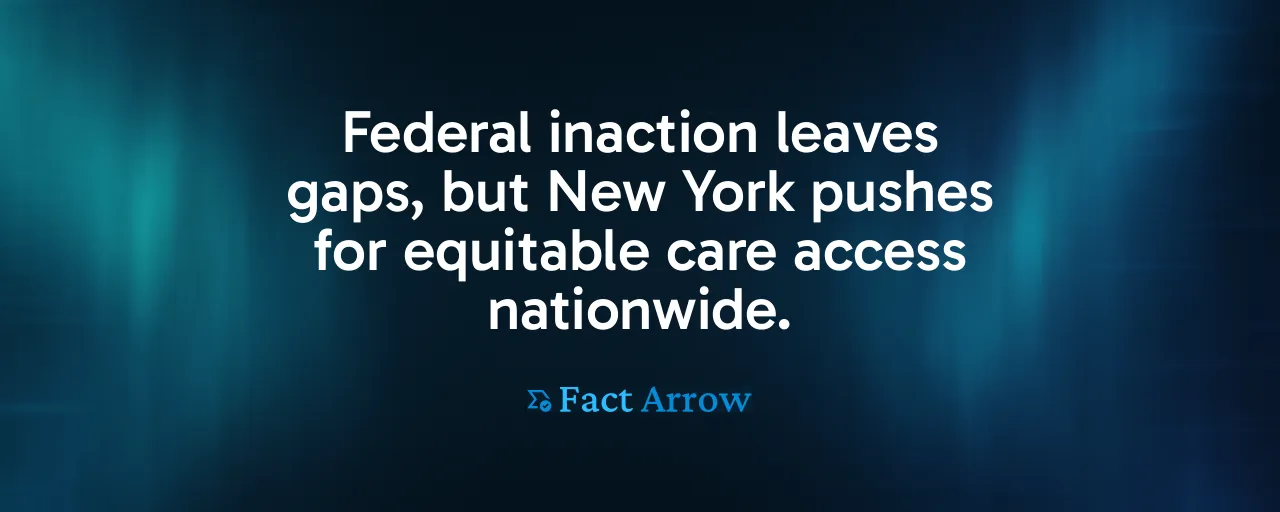A Lifeline in a Time of Crisis
Every New Yorker deserves mental health care without endless obstacles. Governor Kathy Hochul's announcement that all Medicaid managed care plans in the state now meet stricter mental health parity standards is a triumph. While federal leaders abandon critical protections, New York holds insurers accountable, ensuring fair coverage for behavioral health. This commitment offers hope to families grappling with mental illness or addiction.
The state's Office of Mental Health reviewed plans like Capital District Physicians' Health Plan and Excellus BlueCross BlueShield, finding them fully compliant with all regulations. Such progress proves that dedicated leadership can deliver results. Yet, as the Trump administration steps back from enforcing federal parity laws, New York's efforts stand out against a troubling national trend. One state fights fiercely for what should be a basic right, a situation demanding national attention.
The struggle for mental health access spans decades. In the 1990s, advocates demanded insurers treat mental and physical health equally, leading to the 2008 Mental Health Parity and Addiction Equity Act. Enforcement, however, has often faltered. With federal oversight now waning, New York's proactive stance becomes a vital model, highlighting the critical stakes for millions of Americans as federal oversight wanes.
This moment feels personal. Families across New York face real pain, a parent seeking therapy, a young adult battling addiction. When insurers limit care through red tape, they deepen that suffering. New York's reforms show that government can ease these burdens, but only if it prioritizes people over corporate interests.
Federal inaction makes New York's work even more urgent. The Trump administration's decision to pause parity enforcement leaves patients in less vigilant states vulnerable. Without national standards, access to care becomes a patchwork, determined by where you live. New York's success provides a stark call to action, underscoring the need for ongoing effort.
Enforcing Fairness, Step by Step
New York's oversight is relentless. The Office of Mental Health scrutinized six insurer practices, such as prior authorizations, that often restrict behavioral health care. All reviewed plans met these standards, a clear win. Yet some plans still pay providers less for mental health services than for medical care, violating parity laws. The state responded decisively, issuing 95 citations and over $1 million in fines to 11 plans between 2019 and 2021.
These penalties do more than punish. They fund the CHAMP program, which helps New Yorkers resolve insurance disputes and secure treatment. This approach transforms violations into opportunities for better care. Meanwhile, the federal government's halt on parity enforcement allows insurers elsewhere to skirt accountability, leaving patients to fend for themselves.
Past efforts reinforce New York's resolve. A 2021 UnitedHealthcare settlement, yielding $18 million, addressed parity violations and ensured ongoing compliance. Despite a 2024 federal audit noting gaps in New York's documentation, the state's aggressive monitoring sets it apart. While federal regulators hesitate, New York builds a system where insurers face real consequences.
The evidence is clear: oversight works. Between 2018 and 2020, New York uncovered $39 million in wrongful claim denials, proving that without scrutiny, insurers prioritize profits over patients. By reinvesting fines into programs like CHAMP, the state creates a cycle of accountability and care, a model other states and the nation can follow.
The Cost of Federal Retreat
The Trump administration's refusal to enforce parity laws harms countless Americans. These rules prevent insurers from adding barriers, like excessive pre-approvals, that complicate mental health care. Without federal action, insurers in less proactive states can limit access unchecked. A 2024 KFF study found 26 percent of consumers faced delays or denials for mental health services due to such tactics. How can we accept a system where care depends on your zip code?
Some argue deregulation cuts costs and fosters innovation, as outlined in the Heritage Foundation's Project 2025. They claim market solutions, like flexible plans, empower consumers. History tells a different story. Before the Affordable Care Act, insurers routinely denied coverage for mental health conditions, leaving millions without care. New York's data proves strong regulation ensures access for the most vulnerable, a reality that challenges deregulation arguments.
Equity hangs in the balance. A 2025 New York City survey showed 14 percent of adults had unmet mental health needs, with low-income and immigrant communities hit hardest. Proposed federal Medicaid cuts of $912 billion could deepen these disparities, potentially leaving 8.6 million uninsured if subsidies expire. New York's initiatives, like CHAMP and new network standards, demonstrate that targeted policies can reduce inequities, offering a blueprint for national reform.
A Vision Worth Defending
New York's leadership shines, yet it does not offer a complete shield. Starting July 2025, Governor Hochul's new rules will guarantee timely mental health appointments and cost-free out-of-network care if insurers fall short. These measures are bold, yet they can't fully counter federal rollbacks. National standards, like those in the Affordable Care Act, remain essential to protect all Americans, particularly those outside forward-thinking states.
This fight is about human dignity. It's about a teacher in Syracuse getting therapy without delay or a student in Queens accessing addiction treatment without fear of rejection. New York's model of enforcement and investment works, but federal inaction risks leaving millions behind. Will we allow care to become a privilege, or will we demand it as a right for everyone?
New York's progress is a spark, and the fire needs to spread. The state's approach, holding insurers accountable, funding support programs, and setting high standards, provides a compelling model for the nation. As federal leaders favor deregulation, New York carries the fight for mental health justice. Every American deserves the care this state is working to secure. Let's make that a reality.
